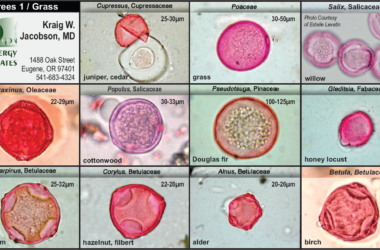
As the weather gets wetter, cooler and the days get shorter, are you experiencing stuffed sinuses or congestion? Are these symptoms putting a damper on your day-to-day enjoyment of life? While not generally recognized by many mainstream medical care providers, there is growing evidence that many people suffering from autoimmune diseases, allergies and sinus issues may have a digestive disorder: leaky gut. So, you may be thinking, what does gut health have to do with my chronic sinusitis?
Leaky gut syndrome, which is also referred to as increased intestinal permeability, is the result of damage to the intestinal lining. When this protective lining is damaged, bacteria, undigested proteins, fats and waste products may leak out of the intestines into the bloodstream.
This leakage may trigger an autoimmune reaction, as well as contribute to gastrointestinal problems such as abdominal bloating, excessive gas and cramps, fatigue, food sensitivities, joint pain, skin rashes, seasonal allergies (aka: Hay-fever) and autoimmunity. Autoimmunity is when your immune system ”overreacts,”can not differentiate between self-proteins and other proteins and may affect a part or the body, such as the thyroid in the case of Hashimotos thyroiditis, or Graves Disease. Do any of these symptoms sound familiar?
The cause of this syndrome may be poor digestion, chronic inflammation, food sensitivity, damage from taking large amounts of non-steroidal anti-inflammatory drugs (NSAIDS) such as Aleve, Ibuprofen, radiation exposure, antibiotic use, excessive alcohol consumption or compromised immunity. Also contributing to this issue is a poor diet, fast food and processed foods – many of the foods we reach for when we are over scheduled and multi-tasking. This disorder may trigger or worsen such illnesses as Crohn’s disease, lupus, celiac disease, rheumatoid arthritis and asthma.
Anytime that our intestinal tracts balance is compromised can lead to frequent colds and a greater sensitivity to other pathogens because our digestive tract is the largest organ of our immune system, contributing around 70 percent of our immune defenses.
Whether or not you are diagnosed, or suspect this imbalance is affecting your health, it is wise to make sure your digestive system is working properly. Digestion is a North to South process. The sight and smell of food triggers the salivary glands to produce salivary amylase, which starts to digest starches in your mouth. This mechanical and chemical process continues south to the stomach. In the stomach the following are secreted: mucus to protect the stomach lining, pepsinogen to produce the enzyme pepsin and hydrochloric (HCl) acid to help the digestive enzymes do their work (particularly to pre-digest proteins and minerals and kill off food borne pathogens.)
Next, the partially digested food moves to the small intestine to complete the digestion process. Digestion continues there with the help of the enzymes produced in the pancreas and the bile from the gallbladder that supports fat digestion. The dark brownish color of our stool is from the bile, so if your poop is a lighter color you may not have a normal bile flow from your gallbladder. The nutrients we need to sustain us are then transported from the small intestine to our bloodstream and eventually to all of our cells. If we have leaky gut, undigested food particles and pathogens can move through our small intestine walls along with digested nutrients, triggering an immune overreaction. Waste products continue south through the large intestine and are eliminated in our bowel movements.
Do you stop all of your multi-tasking to eat? If not, your body may not be ready to take in and digest your meal. When we are busy with tasks, working on the computer or driving for example, our digestive system turns off and we are in what is called sympathetic mode or as you may remember ready for ”fight or flight.”
When we are in a sympathetic or (go, go, go) mode, instead of supporting digestive function, our bodies are getting ready to fight off the attacking bear, or getting us ready to run like the dickens to get to safety. In this sympathetic mode digestion basically shuts down, our bodies systems focus on survival, using stored energy and adrenalin. When our digestive systems are working in the parasympathetic (also known as ”rest and digest”) mode our bodies can focus on the task at hand: digestion. So, if you are eating in a time when your body is more focused on escape and survival (at your desk at work, driving, etc.) the critical digestive process will not function properly and you may experience indigestion.
When our food is not digested properly fats become rancid, proteins putrefy, and carbohydrates ferment. These undigested foods may contribute to an irritated intestinal lining that may allow food particles into the bloodstream (leaky gut) with the resulting symptoms noted above, gas, bloating, allergies and autoimmunity. While there are other requirements for healthy digestion, taking time away from work or activities to eat your meals is a critical ingredient.
Keeping our digestive system working properly is a key to optimal health. As you can see there are many health challenges we commonly experience when our digestion, especially in our intestinal tract is compromised. While there are a myriad of digestive aids to support digestion, taking time to eat and eating a balanced nutrient dense diet is key first step.
For more information on this and other health related topics come in to see me at the Eugene Natural Grocers store. We offer free classes and free one-on-one health coaching sessions.







